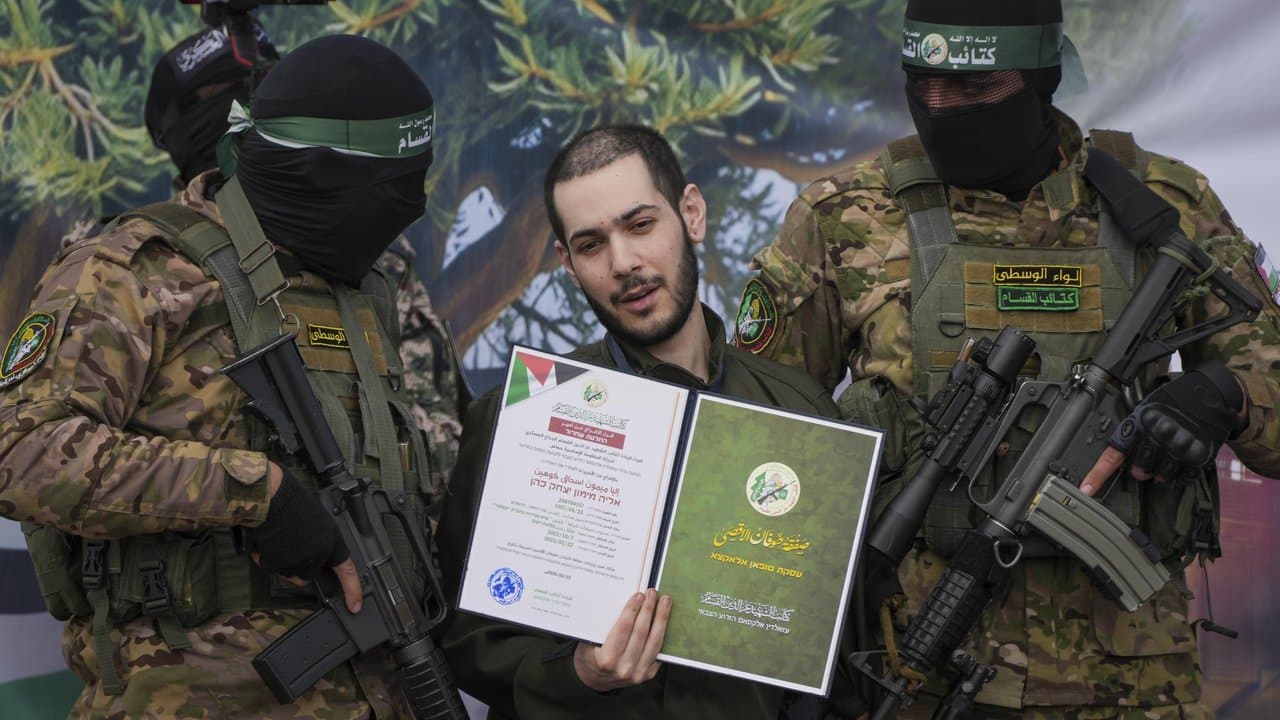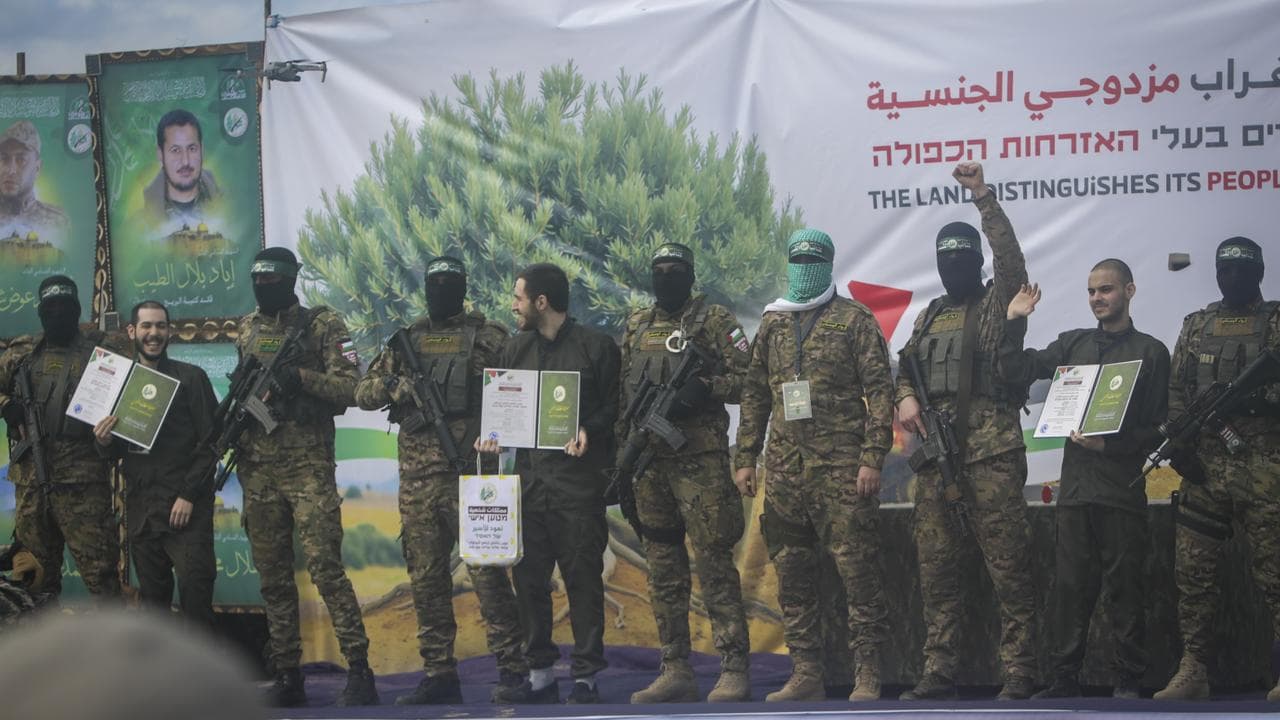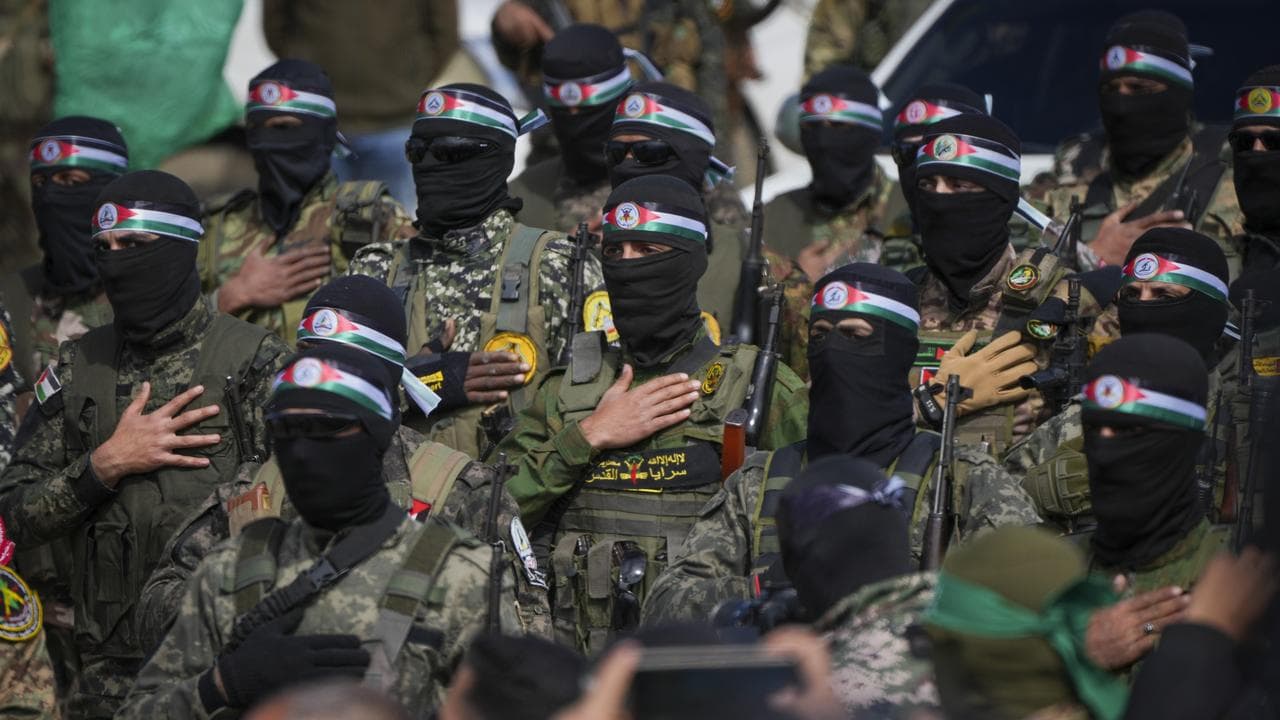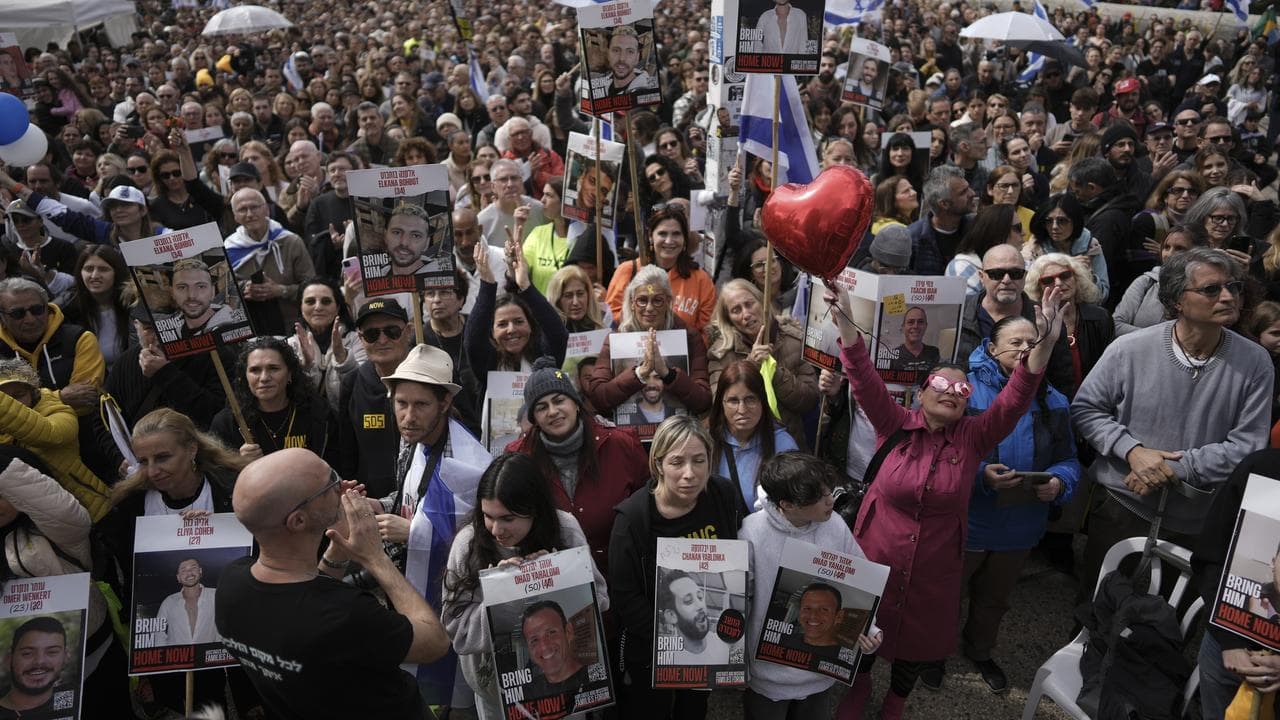
Israel says it is delaying the release of hundreds of Palestinian prisoners it had planned to free until the militant group Hamas meets its conditions, underscoring the fragility of the Gaza ceasefire accord.
Prime Minister Benjamin Netanyahu's office released a statement in the early hours of Sunday saying Israel was waiting to deliver the 620 Palestinian prisoners and detainees "until the release of the next hostages has been assured, and without the humiliating ceremonies".
That was a reference to recent handovers by Hamas that United Nations officials have said went against international law because they were not respectful.
Hamas has made hostages appear on stage in front of crowds and sometimes speak before they were handed over.
Coffins with hostage remains have also been carried through crowds.
Hamas condemned the decision to postpone the Palestinian prisoners' release, saying Israel's claim the hostage handover ceremonies were "humiliating" was a pretext to evade its obligations under the Gaza ceasefire agreement.
"Netanyahu's decision reflects a deliberate attempt to disrupt the agreement, represents a clear violation of its terms, and shows the occupation's lack of reliability in implementing its obligations," Ezzat El Rashq, a member of the Hamas political bureau, said in a statement on Sunday.
Israel's announcement came after the Palestinian militant group on Saturday handed over six hostages from Gaza as part of an exchange arranged under the truce.
The six hostages freed on Saturday were the last living Israeli captives due to be handed over during the first phase of the ceasefire.

The bodies of four dead Israeli hostages were to be released next week.
It was not clear if Israel wanted assurances on that release or other hostage releases.
After the six hostages arrived back in Israel, Hamas released a video in which two other hostages, Eviatar David and Guy Gilboa-Dalal, were seen watching one of the handovers earlier on Saturday.
Hamas spokesperson Abdul Latif Al-Qanou earlier accused Israel of violating the ceasefire as Saturday elapsed without the release of Palestinians as planned.
Israel and Hamas have frequently accused each other of violations since the ceasefire started on January 19 but it has so far continued to hold.
Israelis Eliya Cohen, 27, Omer Shem Tov, 22, and Omer Wenkert, 23, all seized in Hamas' October 7, 2023, attack on Israel, were handed over to the Red Cross on Saturday in central Gaza.

Dozens of militants stood guard in a crowd that had gathered to watch the handover, as masked Hamas men armed with automatic rifles stood on each side of the three men, who appeared thin and pale, as they were made to wave from the stage.
Tal Shoham, 40, and Avera Mengistu, 39, were earlier released in southern Gaza.
Hamas handed over a sixth hostage, Hisham Al-Sayed, a 36-year-old Arab citizen of Israel, to the Red Cross in Gaza City without a public ceremony.
Al-Sayed and Mengistu had been held by Hamas since they entered Gaza of their own accord around a decade ago.
Shoham was abducted from Kibbutz Be'eri along with his wife and two children, who were freed in a brief truce in November 2023.
Sixty-three more captives, less than half of them believed to be alive, remain in Gaza and are due to be released under a three-phase ceasefire deal mediated by Qatar and Egypt.

The fragile truce in the war between Israel and Hamas militants was also threatened by the misidentification of a body released on Thursday as that of Shiri Bibas, who was kidnapped with her two young sons and her husband in Hamas' 2023 attack.
Late on Friday, Hamas handed over another body, which her family said had been confirmed to be hers.
The ceasefire has paused fighting in Gaza, but prospects of a definitive end to the war remain unclear.
Both sides have said they intend to start talks on a second stage, which mediators say aims to agree on the return of all remaining hostages and the full withdrawal of Israeli troops.
The war started when Hamas-led militants launched a cross-border attack on Israeli communities that killed 1200, with another 251 taken hostage, according to Israel.
The Israeli retaliatory offensive has killed at least 48,000 people, the Palestinian health authorities say, and reduced much of the enclave to rubble.




